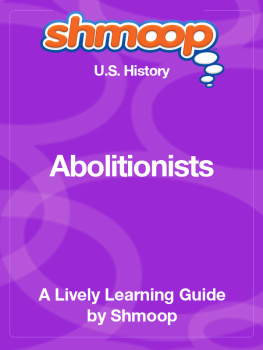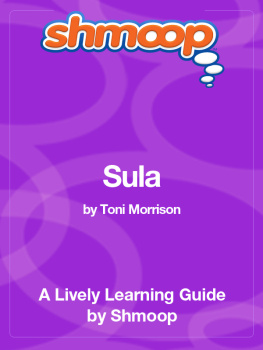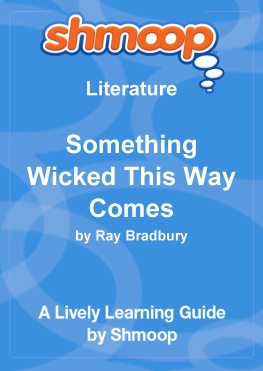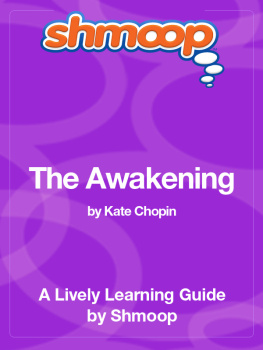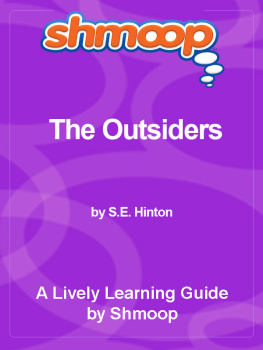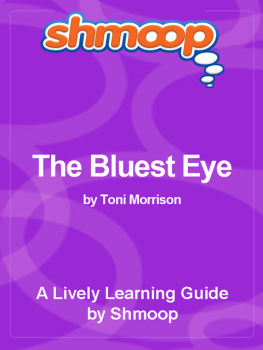Shmoop - Abolitionism
Here you can read online Shmoop - Abolitionism full text of the book (entire story) in english for free. Download pdf and epub, get meaning, cover and reviews about this ebook. year: 2010, publisher: Shmoop, genre: Politics. Description of the work, (preface) as well as reviews are available. Best literature library LitArk.com created for fans of good reading and offers a wide selection of genres:
Romance novel
Science fiction
Adventure
Detective
Science
History
Home and family
Prose
Art
Politics
Computer
Non-fiction
Religion
Business
Children
Humor
Choose a favorite category and find really read worthwhile books. Enjoy immersion in the world of imagination, feel the emotions of the characters or learn something new for yourself, make an fascinating discovery.
Abolitionism: summary, description and annotation
We offer to read an annotation, description, summary or preface (depends on what the author of the book "Abolitionism" wrote himself). If you haven't found the necessary information about the book — write in the comments, we will try to find it.
Abolitionism — read online for free the complete book (whole text) full work
Below is the text of the book, divided by pages. System saving the place of the last page read, allows you to conveniently read the book "Abolitionism" online for free, without having to search again every time where you left off. Put a bookmark, and you can go to the page where you finished reading at any time.
Font size:
Interval:
Bookmark:

Not all abolitionists were complete egalitarians; many shared at least some of the racial beliefs and stereotypes that infused eighteenth- and nineteenth- century America. Black and white abolitionists had their differences, as did male and female abolitionists. Yet, for the sake of their cause, this small but important group of uncompromising and principled Americans somehow managed to overcome the usual boundaries of class, race, and gender that have so often separated people throughout United States history. They worked together amidst an extremely hostile environment of racist northerners and even less receptive southerners; they petitioned a federal government that tried to shut its doors to their pleas; they helped transform a party system that long resisted the disruptive influence that the slavery issue would bring. But for the new western territories and the inherently racist appeal of the "free soil" movement, abolitionists might never have succeeded. And when they did succeed, it turned out that emancipation did not necessarily mean complete freedom or equality for black people. For many more generations, through the Reconstruction period and the Civil Rights Movement, new waves of activists carried on the abolitionists' crusade for equal rights and freedoms for all Americans. Women who found their voices in the abolitionist rank-and-file went on to speak out on their own behalf, for suffrage and just treatment.
This is a story that unfolds over hundreds of years, across the North and South, among people of all races, genders, and religious persuasions. It is therefore appropriate that the main subject of this story centers on the one thing all those people have in common: they recognized slaves' inherent humanity, and the inhumanity of slavery. Their success may have come along with severe limitations, but it came just the same, and when it did, the whole country was forever changed as a result.
So if you are working on behalf of a similarly noble-but-seemingly-lofty cause- environmentalism, the eradication of AIDS, Third World poverty, the fight to end any number of terrible diseases, and so on-you should keep reading. Your ultimate objective might not be reached during your own lifetime, but that's no reason not to make the effort while you are still alive and kicking. Who knows? You might end up in the history books for it! Regardless, you'll be part of a legacy bigger than yourself, one that stretches across the boundaries of both time and space. And that's quite a good way to spend a lifetime.
The apparent contrast between a defiance of divine birthright (the American Revolution against the monarchy) and the acceptance of subordination-from-birth (slavery) was not lost on many colonists, black and white. Although paradoxical, there may have been a sort of relationship at play between the two extremes (some professors might call this relationship a "dialectic"): the blatant inequality, inhumanity, and cruel subjection of bondage and the idealistic self-determination of a free and equal society. The two opposites emerged and developed in contrast to one another, yet alongside one another, similar to the Chinese concept of yin and yang. As historian David Brion Davis has described it, "Since man has a remarkable capacity to imagine abstract states of perfection, he very early imagined a perfect form of subordination." Thus the ideal and the real coexisted in the first 250 years of European settlement on the North American continent; but the lingering potency of the ideal-that is, "that all men are created equal"-also formed the basis for a persevering anti-slavery movement.
Even in colonial times, American societies struggled with the issue of slavery. This continued to be a major issue after independence. The independent, idealistic, and often deeply pious thought that had spurred so many immigrant journeys to the New World also prompted a great many antislavery sentiments among individuals and larger groups. Religion, politics, and philosophy all spurred antislavery activism at various times and in various places. Yet southerners would later mobilize these same forces to defend slavery during the nineteenth century.
Antislavery activists were always a minority within American society, encountering heavy opposition from the majority that either supported slavery outright or wanted to avoid making slavery a divisive political issue. Abolitionists endured violent mob attacks on their lecture halls and printing presses, and for decades a "gag rule" in Congress banned antislavery legislators from even raising the subject. But this opposition only galvanized the antislavery activists. They made martyrs out of the murdered editor Elijah Lovejoy, the beaten Senator Charles Sumner, and the possibly insane John Brown. Abolitionists did not simply want to end slavery, but to reconfigure the terms by which Americans applied their concepts of liberty and equality. They wanted to create a society that embodied the values of the Revolution for all of its citizens, black and white, male and female.
Abolitionists were hardly perfect, and differing attitudes and opinions on racial characteristics, roles, and responsibilities abounded within the mixed classes, genders, and races of the abolitionist movement. In terms of leadership positions, money, and raw numbers (since there weren't that many free blacks in the country) whites dominated the abolitionist movement of the 1830s. Some white activists wanted black runaway slaves to censor their comments about northern racism and simply deliver speeches on the horrors of slavery in the South. White female abolitionists occasionally wrote speeches that they attributed to black female abolitionists, essentially using black women as their vehicle for attempting to forward the antislavery cause. Black abolitionists like David Walker took a more radical approach and called for an immediate end to slavery, but were harshly criticized by some white abolitionists who wanted a gradual emancipation and who feared that such radicalism would scare away potential supporters and even hurt the entire movement.
Font size:
Interval:
Bookmark:
Similar books «Abolitionism»
Look at similar books to Abolitionism. We have selected literature similar in name and meaning in the hope of providing readers with more options to find new, interesting, not yet read works.
Discussion, reviews of the book Abolitionism and just readers' own opinions. Leave your comments, write what you think about the work, its meaning or the main characters. Specify what exactly you liked and what you didn't like, and why you think so.

